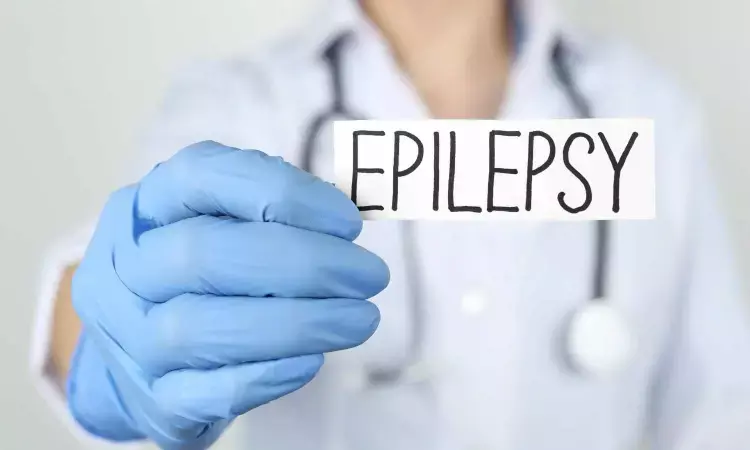- Home
- Medical news & Guidelines
- Anesthesiology
- Cardiology and CTVS
- Critical Care
- Dentistry
- Dermatology
- Diabetes and Endocrinology
- ENT
- Gastroenterology
- Medicine
- Nephrology
- Neurology
- Obstretics-Gynaecology
- Oncology
- Ophthalmology
- Orthopaedics
- Pediatrics-Neonatology
- Psychiatry
- Pulmonology
- Radiology
- Surgery
- Urology
- Laboratory Medicine
- Diet
- Nursing
- Paramedical
- Physiotherapy
- Health news
- Fact Check
- Bone Health Fact Check
- Brain Health Fact Check
- Cancer Related Fact Check
- Child Care Fact Check
- Dental and oral health fact check
- Diabetes and metabolic health fact check
- Diet and Nutrition Fact Check
- Eye and ENT Care Fact Check
- Fitness fact check
- Gut health fact check
- Heart health fact check
- Kidney health fact check
- Medical education fact check
- Men's health fact check
- Respiratory fact check
- Skin and hair care fact check
- Vaccine and Immunization fact check
- Women's health fact check
- AYUSH
- State News
- Andaman and Nicobar Islands
- Andhra Pradesh
- Arunachal Pradesh
- Assam
- Bihar
- Chandigarh
- Chattisgarh
- Dadra and Nagar Haveli
- Daman and Diu
- Delhi
- Goa
- Gujarat
- Haryana
- Himachal Pradesh
- Jammu & Kashmir
- Jharkhand
- Karnataka
- Kerala
- Ladakh
- Lakshadweep
- Madhya Pradesh
- Maharashtra
- Manipur
- Meghalaya
- Mizoram
- Nagaland
- Odisha
- Puducherry
- Punjab
- Rajasthan
- Sikkim
- Tamil Nadu
- Telangana
- Tripura
- Uttar Pradesh
- Uttrakhand
- West Bengal
- Medical Education
- Industry
Maternal psychological distress associated with epilepsy in children, reveals research

A new study published in the journal of PLOS ONE showed that offspring who experience ongoing prenatal anxiety have higher chance of developing epilepsy. With 65 million people affected, epilepsy is the most common, severe, and long-lasting neurological condition in the world. In addition to dealing with the burden of having a chronic, unpredictable illness that may cause them to lose their autonomy in everyday tasks, people with epilepsy frequently face prejudice, miscommunication, and social stigma.
One of the most prevalent neurological conditions in children is epilepsy, and when it first manifests before the age of 3, it is especially linked to high rates of medication resistance and developmental delays. Therefore, it is essential to create preventative strategies to lower the prevalence of epilepsy in kids younger than 3. According to the fetal programming idea, the health and risk of disease of a person are greatly influenced by their surroundings during fetal development.
Here, this research assessed the relationship between 6-item Kessler Psychological Distress Scale (K6) scores and epilepsy in children aged one to three using data from the Japan Environment and Children's Study, a statewide birth cohort study. A retrospective analysis of data from 97,484 children was conducted. Women were given the K6 twice, once during the first half of pregnancy (M-T1) and once during the second half (M-T2). The ranges for M-T1 and M-T2 were 12.3–18.9 (median 15.1) and 25.3–30.1 (median 27.4) weeks, respectively. On the basis of K6 scores at M-T1 and M-T2 in two ranges (≤4 and ≥5), participants were split into 6 groups.
At the ages of 1, 2, and 3, there were 89 (0.1%), 129 (0.2%), and 149 (0.2%) children with an epilepsy diagnosis, respectively. In the univariate analysis, the diagnostic ratios of epilepsy in children aged 1, 2, and 3 years were linked to a maternal K6 score of ≥5 at both M-T1 and M-T2. Further, a maternal K6 score of ≥5 at both M-T1 and M-T2 was linked to epilepsy diagnosis rates in children aged 1, 2, and 3, according to multivariate analysis. Children ages 1, 2, and 3 who experience ongoing, moderate-level psychological discomfort during the first half of pregnancy are more likely to have epilepsy. Overall, the current study showed that children aged one, two, and three who had ongoing, moderate-level psychological distress throughout the first and second halves of pregnancy were more likely to have epilepsy.
Reference:
Arai, Y., Okanishi, T., Masumoto, T., Noma, H., & Maegaki, Y. (2024). The impact of maternal prenatal psychological distress on the development of epilepsy in offspring: The Japan Environment and Children’s Study. In A. M. Wollie (Ed.), PLOS ONE (Vol. 19, Issue 11, p. e0311666). Public Library of Science (PLoS). https://doi.org/10.1371/journal.pone.0311666
Neuroscience Masters graduate
Jacinthlyn Sylvia, a Neuroscience Master's graduate from Chennai has worked extensively in deciphering the neurobiology of cognition and motor control in aging. She also has spread-out exposure to Neurosurgery from her Bachelor’s. She is currently involved in active Neuro-Oncology research. She is an upcoming neuroscientist with a fiery passion for writing. Her news cover at Medical Dialogues feature recent discoveries and updates from the healthcare and biomedical research fields. She can be reached at editorial@medicaldialogues.in
Dr Kamal Kant Kohli-MBBS, DTCD- a chest specialist with more than 30 years of practice and a flair for writing clinical articles, Dr Kamal Kant Kohli joined Medical Dialogues as a Chief Editor of Medical News. Besides writing articles, as an editor, he proofreads and verifies all the medical content published on Medical Dialogues including those coming from journals, studies,medical conferences,guidelines etc. Email: drkohli@medicaldialogues.in. Contact no. 011-43720751


